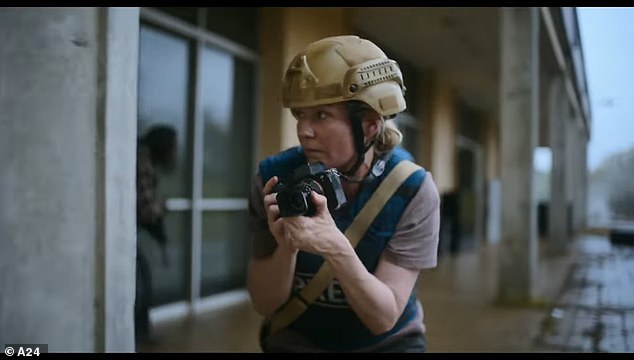Liberal anxiety over schisms in American politics has turned Alex Garland’s thriller Civil War into one of the biggest Hollywood hits of the year.
The British-born director has explicitly stayed away from conventional divisions, portraying California and Texas as allies against a dictatorial president of an unnamed party who has given himself a third term.
But the vision of an America devastated by armed militias and torn by war has attracted four times more liberal than conservative theaters, becoming the biggest R-rated release of the year so far.
The film, starring Kirsten Dunst, grossed $25.7 million in its first weekend after opening Friday on the anniversary of the first American Civil War and has been criticized by some for coinciding with one of the most tense electoral years in history.
“The title alone is enough to start a conversation in a year when political discourse is top of mind,” said Paul Dergarabedian, media analyst at Comscore. “And they couldn’t have picked a better date.”
Kirsten Dunst, 41, plays a journalist traveling through a divided nation, where a three-term president battles secessionist forces in California and Texas.
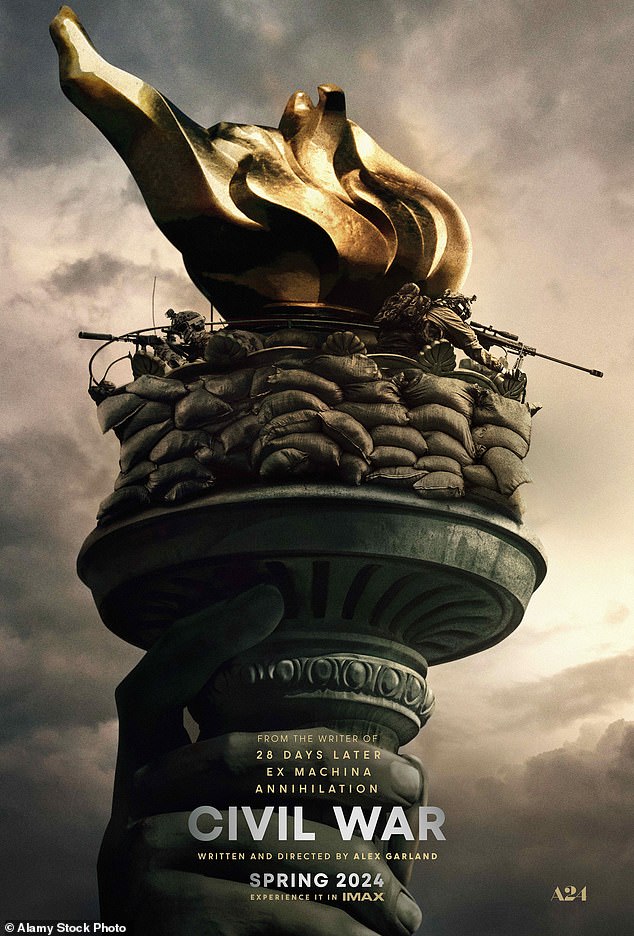
The film grossed $25.7 million in its opening weekend and became the biggest R-rated release of the year to date.
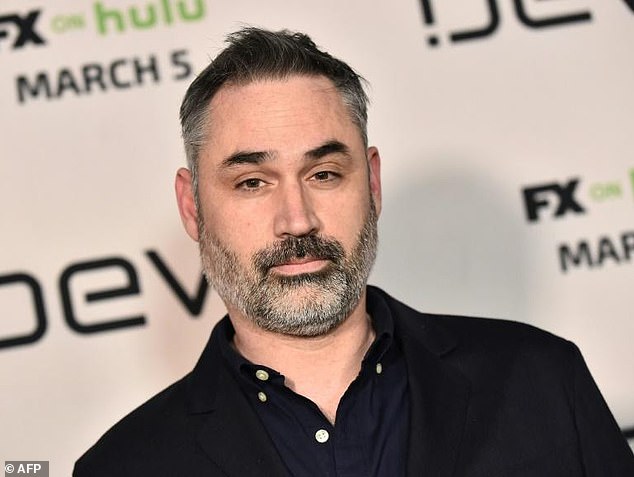
“I think the civil war is just an extension of a situation,” director Alex Garland, 53, told the New York Times. ‘That situation is polarization and the lack of limiting forces to polarization’
Dunst, Wagner Moura and Cailee Spaeny play frontline journalists in the near future during the final days of an American civil war as rival armies approach Washington DC.
In the plot, more than a dozen states secede from the union, but no reasons are given and the doctrines of the rival factions are kept deliberately ambiguous.
“It was a delicate balance,” Garland said.
‘The plan is to make a compelling and engaging film, and the product of the compelling and engaging film is a conversation.
“So the questions are: How do you make sure you don’t dismantle a conversation in the first part of that equation?”
Despite their efforts, it seems the conversation is being heard primarily on one side of the divide: 19 percent of viewers say they are Democrats and six percent are Republicans.
The Comscore survey also found that 22 percent described themselves as liberal and only five percent as conservative.
Garland has admitted that he viewed the Jan. 6 attack on the Capitol as a “disgrace,” and many onlookers have claimed that his attempt to walk the line between America’s polarized communities has not worked.
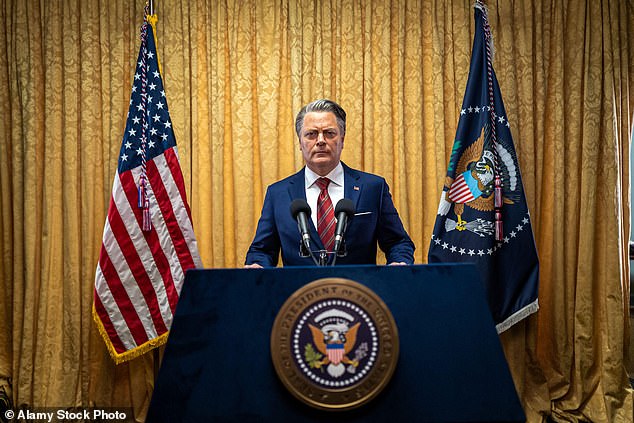
Nick Offerman plays a ‘fascist’ president who has given himself a third term
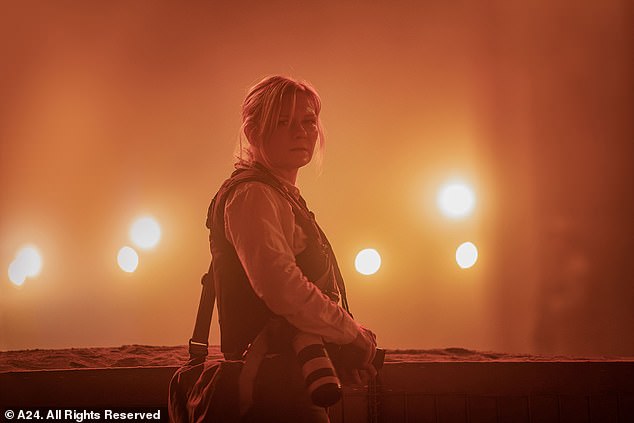
Kirsten Dunst plays a veteran photojournalist trying to get an interview with the president as rebel armies close in on the White House.

The $50 million film shot in Georgia is the most expensive production from the A24 studio
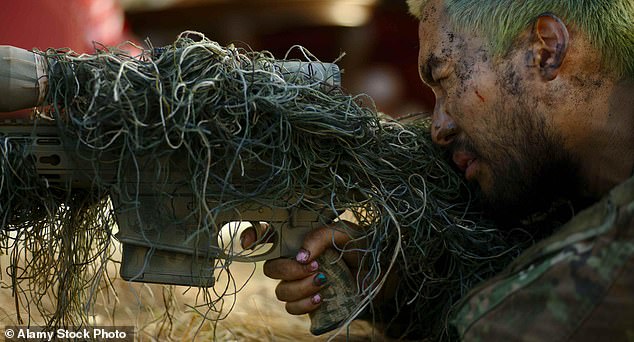
Garland deliberately attempted to create ambiguity for the audience about who was fighting whom.
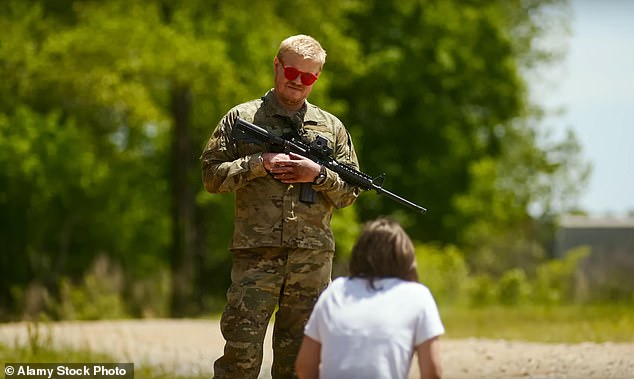
Cailee Spaeny and Jesse Plemons in one of the most shocking scenes of the film
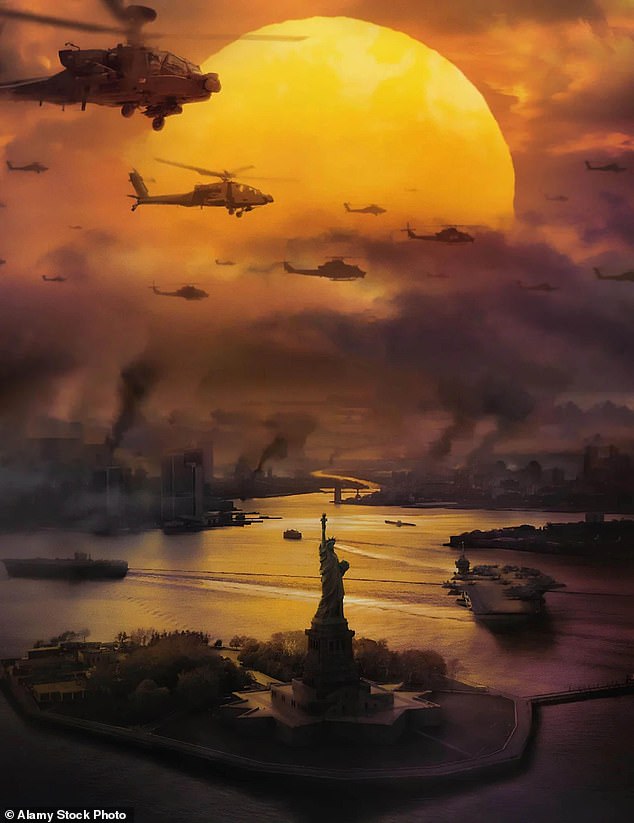
“The plan is to make a compelling, engaging movie,” Garland said. “And the product of the compelling and engaging film is a conversation
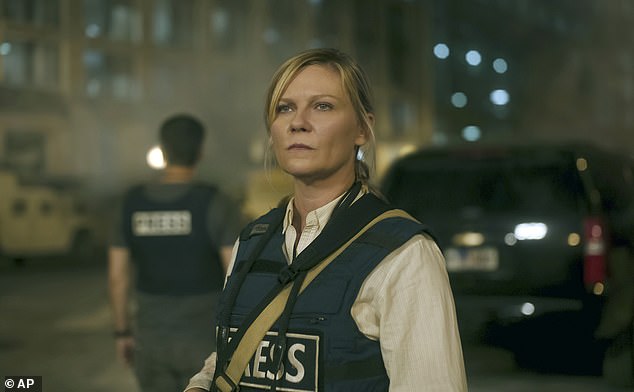
Civil War takes the form of a road movie: a trunk full of journalists driving from New York City to their date with destiny in Washington, DC.
‘Really baffled by all the talk about Civil War (a movie in which one side is clearly The Bad Boys and is led by clearly Republican fascists and white nationalists) is somehow apolitical, because it clearly isn’t!’ Brendan Hodges tweeted.
“The new Civil War movie is conditioning propaganda,” added Jonee Fry. “The traces of radical leftists are everywhere.”
“If you want to see a tarred and feathered Trump analogue in a movie, just say so,” Vyce Victus added.
Garland, who is also the mind behind Ex Machina and Annihilation, has said that the premise of the film is that there is a “fascist president who is killing his own citizens.”
“So what has happened is that two states that are on different political positions are saying that we are more concerned about a violent, fascist president destroying the Constitution than about our political differences.
“When things collapse, the speed at which they collapse tends to surprise people, including people like intelligence officers whose job it is to observe and predict when these things will happen.
‘Things are always in a slightly more dangerous state than they seem.
‘The consequences are so serious that not taking the threat seriously would be, in itself, another kind of madness. “It would just be complacent.”
The film received its largest audiences in Los Angeles, San Francisco, DC, Phoenix, Austin and San Diego.
But it also turned out hot in smaller red state cities, including El Paso and Waco, Texas, Oklahoma City, Albuquerque, New Mexico, and Charlottesville, Virginia.
The $50 million-budgeted film is the most expensive made by studio A24 and was released on 3,838 screens in the United States and Canada.

Dunst was at the special Los Angeles screening at the Academy Museum of Motion Pictures.
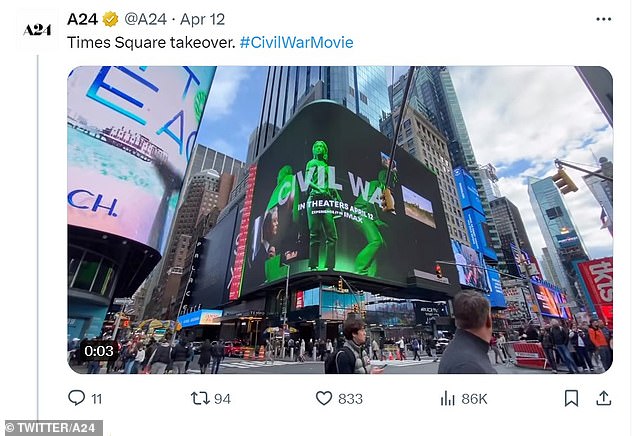
Earnings are more than double the average for a dystopian thriller in its opening weekend, according to industry analyst David A. Gross.
These films “are usually set in futuristic worlds that look very different from contemporary life,” Gross said.
‘Civil War is doing the opposite: it seems that right now. The film is transforming the genre into something contemporary and relatable.”
But the director has certainly failed so far to transcend one of the most pronounced divisions among American moviegoers, where men make up more than 70 percent of his audience.


